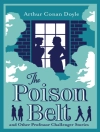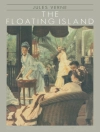In ‘The Life and Adventures of Robinson Crusoe, ‘ originally published in 1719 and revised in subsequent editions, Daniel Defoe weaves a compelling narrative that explores themes of survival, individuality, and the human spirit’s resilience. This early work of the novel form combines rich, descriptive prose with a clear moral philosophy, effectively placing Crusoe’s journey against the backdrop of 18th-century colonial and economic expansion. The story chronicles Crusoe’s shipwreck on a deserted island, detailing his resourcefulness as he confronts isolation and civilization’s values, ultimately engaging readers in deep philosophical reflections on society and self. Defoe’s narrative style includes vivid imagery and a first-person perspective that immerses readers in Crusoe’s psychological and physical struggles. Daniel Defoe (1660-1731), an English writer, journalist, and pamphleteer, drew from his own experiences in trade, travel, and realism in crafting this seminal work. Influenced by Enlightenment ideals and the burgeoning interest in personal adventure narratives, Defoe also faced financial difficulties and imprisonment for his political writings, encapsulating the tumultuous spirit of his era that resonates through Crusoe’s journey from despair to self-discovery. Defoe’s ability to blend fiction with elements of autobiography grants depth to Crusoe’s character, making him an enduring icon of literature. This classic tale is not only a gripping adventure but also a thought-provoking exploration of human nature and societal constructs. I highly recommend ‘The Life and Adventures of Robinson Crusoe’ to readers seeking both entertainment and insight, as it invites a critical examination of independence and the essence of civilized life, ensuring its relevance in contemporary discourse.
Об авторе
Daniel Defoe (c. 1660 – 1731) was an English writer, journalist, and pamphleteer now most famously known for his novel ‘The Life and Adventures of Robinson Crusoe’ (1719). Defoe is often credited with popularizing the novel form in Britain and is sometimes regarded as one of the founders of the English novel. His work is characterized by its narrative vividness, adventure elements, and themes of survival and individualism. ‘Robinson Crusoe’, which is considered his most notable work, is a fictional autobiography of the title character—a shipwrecked sailor who spends 28 years on a remote tropical island near Trinidad. The novel has been widely regarded as reflecting the colonial and imperialist values of Defoe’s time, as well as tapping into the existing stories and narratives of castaways, surely an influence from his intense journalistic pursuits. Defoe’s oeuvre shows a deep interest in social and political issues of his day, something that underpins much of his storytelling. His writing style is marked by its directness and attention to detail, aspects that have contributed to the enduring popularity of his works. Despite the fame of ‘Robinson Crusoe’, Defoe was prolific and worked in a variety of genres — he wrote more than 300 works, including novels, pamphlets, and political pieces, making him a significant figure in the development of literary culture in the early 18th century.












